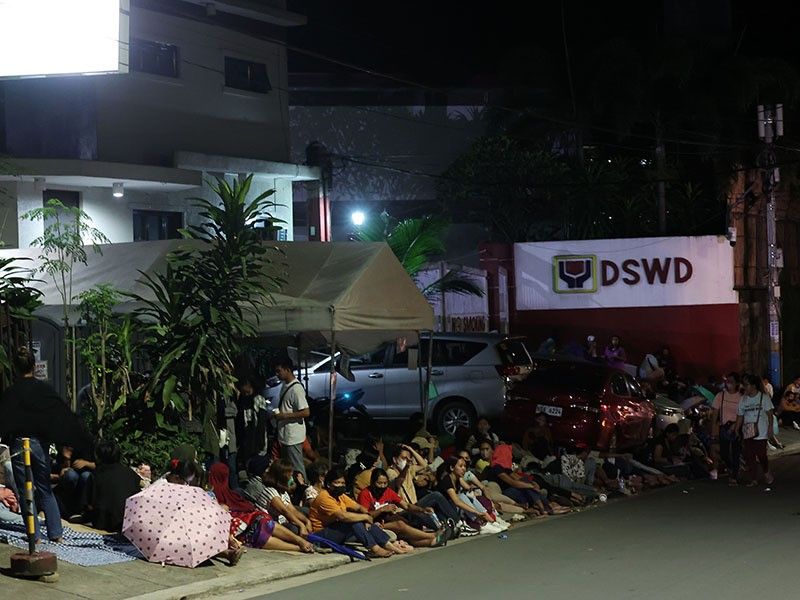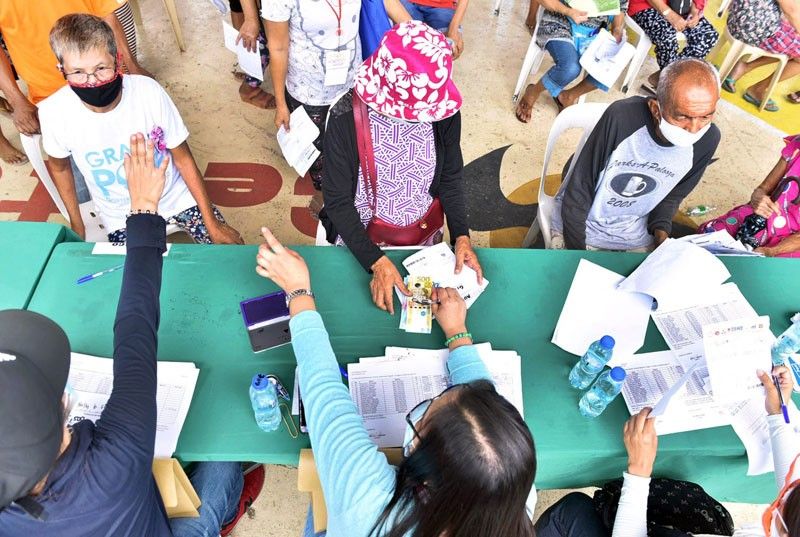![]()
Thousands of students, parents and guardians line up on Aug. 20, 2022 in Ilagan City, Isabela after the Department of Social Welfare and Development announced that it will distribute cash aid to indigent learners.
Philstar.com / Halee Andrea AlcarazMANILA, Philippines (Updated 8:28 a.m.) — The Department of Social Welfare and Development began distributing financial aid for indigent students last Saturday, prompting thousands to troop to regional offices across the country.
But what is an indigent, exactly? Definitions vary across government agencies, but they are generally poor Filipinos with little to no means to support themselves.
The DSWD's memorandum circulars on the Assistance to Individuals in Crisis Situations — educational aid is among the assistance available — do not provide a definition of an indigent.
The program instead refers to beneficiaries "in crisis", or those experiencing a "breakdown or disruption in their usual or normal daily activities or family functioning" that keeps them from functioning and that could make their lives worse if unaddressed.
Under Memorandum Circular No. 2019-11, beneficiaries for educational aid could include:
Succeeding MCs, including Memorandum Circular 2022-015 issued by Social Welfare Secretary Erwin Tulfo, have expanded the definition of who can be considered "students-in-crisis" to include:

Although the DSWD can require a certificate of indigency — a document from the barangay chairperson saying an applicant for aid is an indigent resident of that village — Tulfo has done away with that for educational aid since, he said, many fail to apply because they cannot afford to even pay for the certification.
Applicants for educational aid will still need to present a valid school ID and proof of enrollment.
MC 2022-015 adds that "in general, any individual, whether indigent or not, who is in a crisis situation or in difficult circumstances in life may be assisted through the provision of any of the assistance possible."
Under the new MC, program's beneficiaries include those whom DSWD determines to be in "a 'state of active crisis' or 'crisis situation' or needing financial or material support from the National Government."
Although AICS does not define who indigents are, government programs and agencies that offer services to poor Filipinos have varying but related definitions of indigency.
The DSWD includes farmers and farm workers, homeless families and informal settlers and those from other vulnerable groups as potential beneficiaries of the Pantawid ng Pamilyang Pilipino (4Ps) program.
The department maintains the National Household Targeting System for Poverty Reduction, also known as the Listahanan, an information management system on the country's poor.
The list, meant for the implementation of targeted social protection programs like the 4Ps, uses the Proxy Means Test, which has indicators to help estimate a household's income.
Among the indicators used for the Proxy Means Test are "materials in housing structure, household’s access to basic services and facilities like water and electricity, and ownership of specific assets, among others."
4Ps beneficiaries must be "classified as poor and near-poor" based on the poverty threshold issued by the Philippine Statistics Authority. A family of five living on less than P12,082 a month falls under that threshold, based on the 2021 PSA figure.
However, 4Ps beneficiaries are not qualified for the educational aid that the DSWD will be distributing since they already receive subsidies under the program.

The Public Attorney's Office has an indigency test, which is part of its assessment on whether it can represent a potential client: Those in Metro Manila whose family income is P14,000 a month or lower — the threshold is P12,000 a month in rural areas — are considered indigents.
For the Philippine Health Insurance Corp. and the National Health Insurance Act, "a person who has no visible means of income, or whose income is insufficient for family subsistence, as identified by the DSWD" is considered an indigent who qualifies for automatic enrollment for government health insurance.
Elderly persons who are "frail, sickly or with disability" and who do not have a pension, permanent source of income or support from relatives to pay for their basic needs are indigents under the Expanded Senior Citizens Act and are qualified to receive social pension.